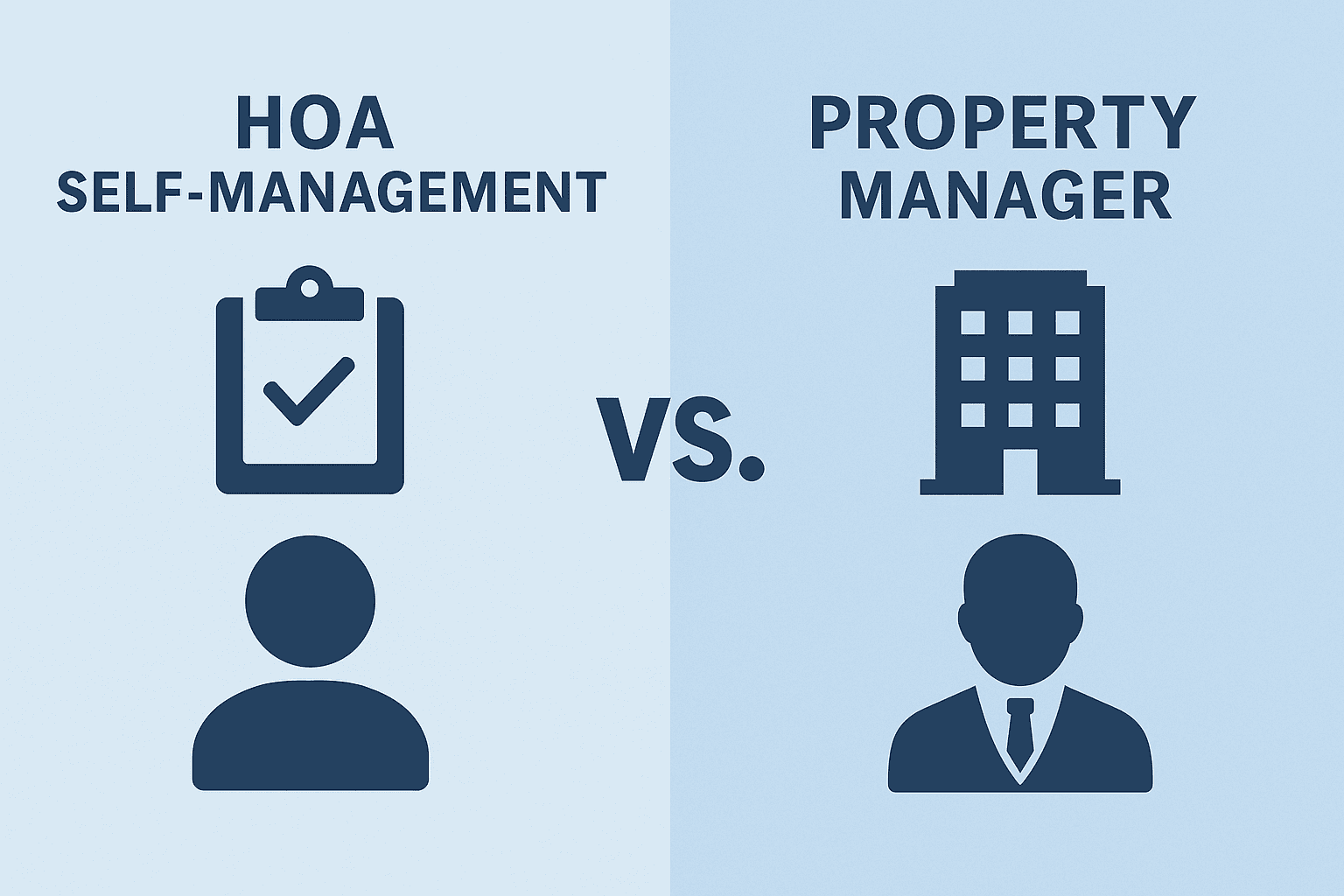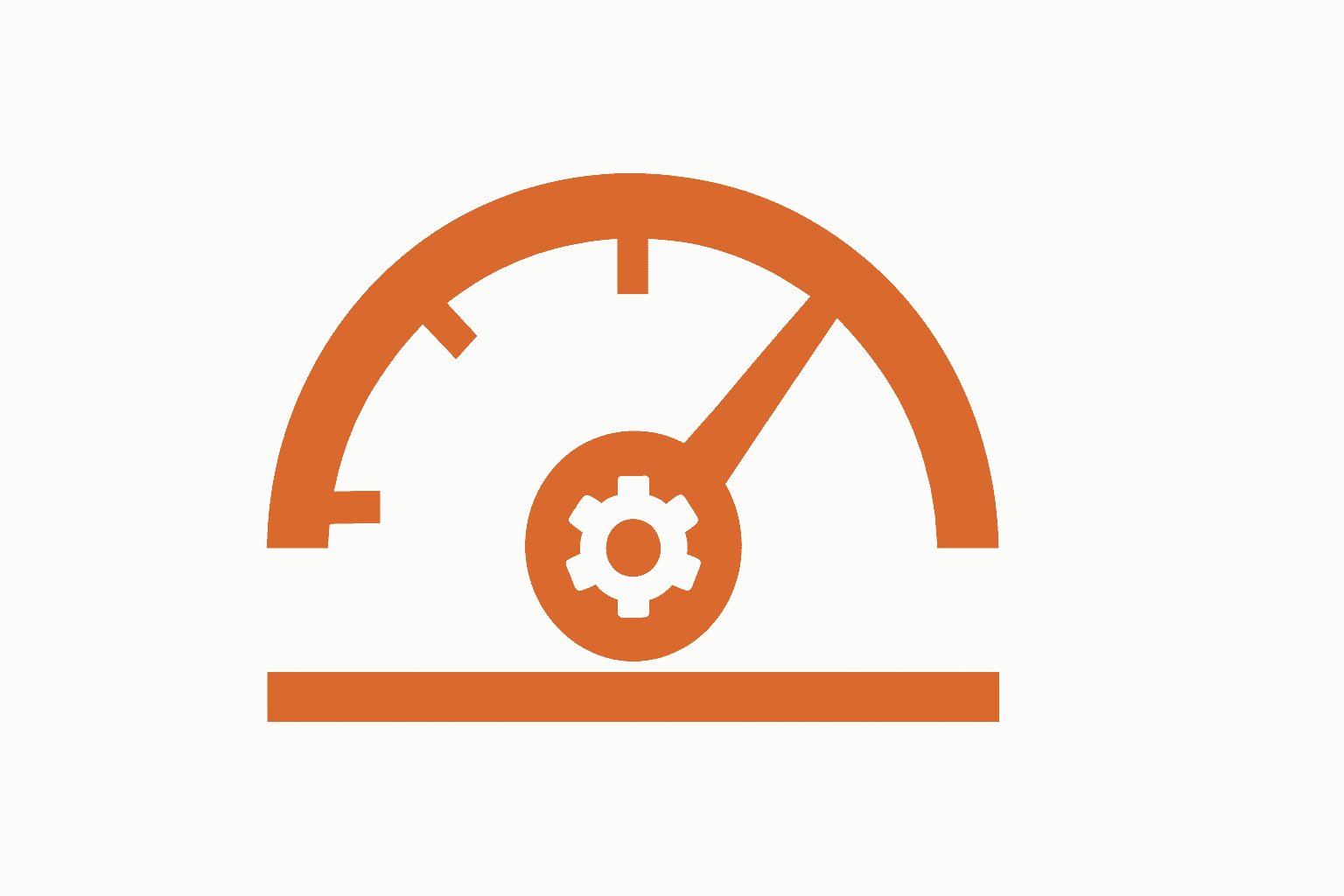HOA Self-management vs property manager: Which is right for your community?
Choosing between HOA self-management and hiring a property manager can shape your community’s success. Learn the key differences, pros, and cons to decide which approach fits your board’s skills, budget, and long-term goals.

Choosing between HOA self-management vs property manager is one of the most important decisions a homeowners association can make. The management approach you pick will affect your budget, how smoothly your community runs, and the overall experience for residents.
Some boards prefer the control and cost savings of self-management. Others value the expertise and convenience of a professional management company. The right choice depends on your community’s size, needs, and the skills and availability of your board members.
In this guide, we’ll break down the differences, benefits, challenges, and key considerations so you can make an informed choice.
Disclaimer: We’re not a management company. Anyhoa is a simple software solution for smaller HOAs – mostly those that are self-managed.
What is HOA self-management?
In a self-managed HOA, the board of directors, who are volunteer homeowners elected by the community, handles all daily operations without a third-party manager. This includes:
- Collecting HOA fees and keeping financial records
- Scheduling maintenance and repairs
- Enforcing community rules
- Communicating with residents and vendors
- Planning board meetings and maintaining records
For example, if a streetlight goes out, the board arranges repairs directly with a contractor. If dues are late, the board handles collections themselves.
Self-management offers complete control, but it also demands significant time and effort.
What is a property manager?
An HOA property manager (or management company) is a hired professional or firm that takes over most operational responsibilities. Their role often includes:
- Managing finances, budgets, and collections
- Scheduling and overseeing maintenance
- Enforcing rules and regulations
- Coordinating with vendors and contractors
- Advising on legal compliance
The board still makes the big decisions; for example, approving budgets or deciding on new community projects but the manager executes those decisions and handles day-to-day issues.
Pros and cons of HOA self-management
Pros:
- Lower costs – No management fees means more money stays in the HOA’s budget.
- Full control – The board can act quickly without waiting for a manager’s input.
- Closer resident connection – Board members interact directly with homeowners, often leading to stronger relationships and community trust.
Example: A 15-home HOA with minimal shared amenities might prefer self-management to keep dues low and maintain direct oversight.
Cons:
- Time-consuming – Managing an HOA can feel overwhelming for volunteering board members.
- Limited expertise – Not all boards have experience with legal compliance, financial planning, or vendor negotiations.
- Risk of burnout – The workload can overwhelm even dedicated volunteers.
Pros and cons of hiring a property manager
Pros:
- Professional expertise – Managers bring industry knowledge, vendor connections, and best practices.
- Reduced workload for the board – The board can focus on decision-making instead of administrative tasks.
- Lower risk – Compliance issues, insurance gaps, and maintenance backlogs are less likely.
Example: A 200-home HOA with a pool, clubhouse, and landscaped parks might rely on a property manager to coordinate vendors, manage amenities, and ensure compliance with state laws.
Cons:
- Higher costs – Management fees can raise HOA dues significantly.
- Less direct control – Some daily decisions are handled by the manager rather than the board.
- Possible disconnect – Managers may lack the personal insight that comes from living in the community.
How to choose the right approach
When deciding between HOA self-management vs property manager, ask:
- Community size – Smaller HOAs often manage well on their own. Larger ones typically need professional help.
- Board skills – Does your board have experience with finances, contracts, and conflict resolution?
- Time commitment – Are volunteers available year-round?
- Budget – Can you cover management fees without straining homeowners?
- Risk tolerance – Can your board confidently handle compliance and disputes?
Is there a middle ground?
Great question! Yes there is. Some HOAs choose partial or remote management. For example, a management company may handle finances and compliance while the board manages resident communication and oversees maintenance. This hybrid approach can save costs while still providing professional support.
Common mistakes when choosing an approach
- Underestimating workload – Many boards start with self-management but struggle as responsibilities grow.
- Ignoring legal risks – A single compliance mistake can cost more than a year of management fees.
- Switching too late – Waiting until the board is burned out can make transition harder.
- Choosing on cost alone – The cheapest option isn’t always the most effective long term.
Frequently asked questions
- Is self-managing an HOA worth it?
Yes, for small communities with engaged, skilled board members. It saves on management fees but requires significant volunteer time and commitment. - Do property managers make HOA dues go up?
Usually, yes — fees are an added expense. However, they can also prevent costly mistakes and improve efficiency, which may save money over time. - Can an HOA switch from a property manager to self-management?
Yes. An HOA can change its structure at any time if the board follows proper procedures and the management contract terms. - Which option is better for a large HOA? Large HOAs with more amenities often benefit from professional management due to the workload and compliance needs.
- What’s the biggest risk of self-management? Lack of expertise. Without professional knowledge in finances, contracts, and legal matters, a board can make costly errors.
- How can a self-managed HOA reduce workload? By using HOA management software, hiring part-time professionals for specific tasks, and clearly dividing responsibilities among board members.
Final thoughts
The choice between HOA self-management vs property manager depends on your community’s size, resources, and goals.
If your board has the time, skills, and motivation, self-management can save money and foster close community ties. But for larger, more complex HOAs, a property manager can bring efficiency, expertise, and peace of mind.
The key is to choose the model that ensures your community is well-run, financially sound, and a great place to live.
If you want to see how Anyhoa can help your community you can check out our features here.






